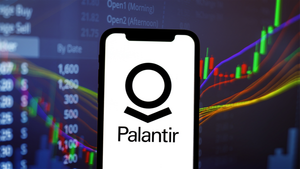
Google (NASDAQ: GOOGL) is making substantial, ongoing investments in AI infrastructure and tools, specifically targeting the Small and Medium-sized Business (SMB) market. This isn't just a minor initiative; it's a major strategic bet on AI's future profitability and widespread adoption, aiming to deeply embed AI into the core operations of millions of SMBs. This aggressive push is designed to democratize access to advanced AI capabilities, enabling smaller businesses to compete more effectively, boost productivity, and drive measurable growth in an increasingly digital and AI-driven economy. Google's strategy positions AI not merely as an add-on but as the fundamental operating system for future business workflows, securing its own relevance and expanding its ecosystem. The company's multifaceted approach includes significant capital expenditure on core AI infrastructure, the development of user-friendly AI-powered tools, and extensive educational initiatives to onboard SMBs into this new technological paradigm.
Deep Dive into Google's AI Arsenal for SMBs
Google's commitment to the SMB AI sector is evident in its comprehensive suite of offerings, ranging from foundational infrastructure to specialized applications. Alphabet, Google's parent company, is investing billions into its AI infrastructure, recognizing it as the bedrock for its next growth phase. This robust infrastructure underpins Google Cloud's managed AI services, which provide SMBs with access to pre-trained models like Vision AI, Natural Language AI, and AutoML. These services are designed to be low-code or no-code, significantly lowering the barrier to entry for businesses without extensive technical expertise or large development teams.
A key differentiator from previous approaches is the seamless integration of generative AI directly into widely used platforms. As of January 2025, Google Workspace (including Gmail, Docs, Sheets, and Meet) has integrated advanced AI capabilities into its Business and Enterprise plans without requiring additional add-ons. This means SMBs can leverage tools for automated email summarization and drafting, document generation, meeting note creation, and enhanced data analysis in Sheets, all powered by Gemini AI. Workspace Flows further allows for the automation of repetitive tasks, transforming mundane workflows into efficient, AI-driven processes. This contrasts sharply with earlier AI tools that often required separate subscriptions, complex integrations, or significant technical know-how.
Beyond productivity suites, Google is innovating in marketing and advertising tools. October 2025 saw the introduction of Pomelli, an AI experiment from Google Labs and DeepMind. Pomelli helps SMBs craft professional, on-brand marketing campaigns by analyzing a business's website to generate a "Business DNA" profile, then producing editable assets for social media, websites, and ads. This move simplifies sophisticated marketing, previously the domain of larger agencies, for smaller players. Furthermore, Google Ads' Performance Max, an AI-powered campaign tool, optimizes ad targeting and discovers conversion opportunities, aiming for higher conversions at a lower cost. Google Analytics 4, with AI at its core, provides predictive insights into consumer behavior, helping SMBs refine their marketing strategies more effectively than previous analytics platforms. Initial reactions from the SMB community have been largely positive, with businesses expressing enthusiasm for the potential to automate tasks, gain deeper customer insights, and level the playing field against larger competitors. Industry experts highlight Google's strategy of embedding AI directly into familiar tools as a critical factor for rapid adoption.
Competitive Landscape and Strategic Implications
Google's aggressive foray into the SMB AI market carries significant implications for a wide array of tech companies, from established giants to nimble startups. Primarily, Google stands to benefit immensely by solidifying its ecosystem as the default operating system for AI-driven business workflows. By integrating AI deeply into Workspace, Cloud, and Ads, Google aims to make its suite indispensable, fostering greater reliance and stickiness among its vast SMB user base. This strategy expands Google's addressable market beyond traditional search advertising, creating new, recurring revenue streams from subscriptions and enhanced services.
The competitive implications for major AI labs and tech companies are substantial. Microsoft (NASDAQ: MSFT), with its Copilot integration across Microsoft 365, is a direct competitor in this space, vying for the same SMB market share. Google's approach of making AI capabilities often included in existing Workspace subscriptions, as seen with Gemini AI, puts pressure on competitors who might offer AI as a premium add-on. Companies specializing in niche AI tools for marketing, customer service, or operational efficiency may face increased competition as Google's comprehensive, integrated offerings become more robust and accessible. Startups focusing on specific AI solutions for SMBs will need to innovate rapidly and demonstrate unique value propositions to differentiate themselves from Google's broad, powerful ecosystem.
This development poses a potential disruption to existing products and services that cater to SMBs without strong AI integration. Businesses reliant on manual processes or less sophisticated analytics tools will find themselves at a disadvantage, pushing them towards AI adoption. For marketing agencies serving SMBs, the availability of tools like Pomelli could either streamline their operations or challenge their traditional service models, necessitating a shift towards higher-value strategic consulting rather than basic content creation. Google's market positioning is strengthened by its existing relationships with millions of SMBs through Google My Business, Google Ads, and Google Workspace, providing a massive distribution channel for its new AI tools. This strategic advantage, combined with its massive AI research and development capabilities, positions Google as a formidable leader in democratizing AI for the small business sector.
Broader Significance and AI Landscape Trends
Google's deep dive into the SMB AI market is not just a corporate strategy; it's a significant inflection point in the broader AI landscape. It underscores a major trend: the democratization of artificial intelligence. Historically, advanced AI capabilities were largely the domain of large enterprises with deep pockets and specialized data science teams. Google's investment aims to dismantle this barrier, making sophisticated tools accessible and affordable for the millions of small and medium-sized businesses that form the backbone of global economies. This move aligns with the broader industry shift towards making AI practical, user-friendly, and embedded into everyday applications, rather than being a standalone, complex technology.
The impacts are wide-ranging. For SMBs, it promises enhanced productivity, operational efficiency, and a newfound ability to compete with larger players by leveraging AI for tasks like personalized marketing, customer service automation, and data-driven decision-making. This could lead to a surge in innovation and economic growth within the SMB sector. However, potential concerns include data privacy, the ethical implications of AI deployment, and the digital divide – ensuring that all SMBs, regardless of their technological readiness, can benefit. There's also the risk of over-reliance on a single vendor's AI ecosystem, potentially limiting choice and fostering vendor lock-in.
Comparing this to previous AI milestones, Google's current strategy echoes the widespread adoption of cloud computing and mobile technology. Just as these technologies transformed how businesses operated, AI integration into SMBs is poised to be equally transformative. Earlier breakthroughs, such as deep learning's impact on image recognition or natural language processing, were foundational. Now, the focus is on practical application and widespread accessibility. Google's "Make AI Work for You" and "Small Business B(AI)sics" initiatives, along with the funding for America's SBDC AI U, highlight a critical understanding that technology adoption requires education and support, not just powerful tools. This comprehensive approach, combining cutting-edge technology with extensive user enablement, signifies a maturing of the AI industry, moving from theoretical advancements to pervasive, real-world utility.
Future Developments and Expert Predictions
The trajectory of Google's AI investments in the SMB market suggests several exciting near-term and long-term developments. In the near future, we can expect a continuous rollout of more refined and specialized AI features within Google Workspace, Google Ads, and Google Cloud. This will likely include more sophisticated generative AI capabilities tailored for specific industry verticals within the SMB sector, offering hyper-personalized solutions for retail, hospitality, professional services, and more. Enhanced predictive analytics will become even more prevalent, allowing SMBs to anticipate market shifts, customer needs, and supply chain disruptions with greater accuracy. The ongoing development of tools like Pomelli indicates a future where AI will not only assist but actively co-create marketing content, business plans, and even product designs.
Looking further ahead, the potential applications and use cases are vast. We could see AI-powered virtual assistants becoming ubiquitous for SMB customer service, capable of handling complex queries and providing proactive support. AI might also revolutionize inventory management, logistics, and supply chain optimization for small businesses, predicting demand and automating reordering processes. Personalized customer relationship management (CRM) systems, driven by AI, could offer unprecedented insights into customer behavior, enabling micro-targeted campaigns and bespoke service. Furthermore, AI could empower SMBs in areas like cybersecurity, offering advanced threat detection and automated response systems that were once only available to large enterprises.
However, several challenges need to be addressed for this vision to fully materialize. Data privacy and security remain paramount, especially as AI systems process sensitive business and customer information. Ensuring the ethical deployment of AI, avoiding biases, and maintaining transparency in AI-driven decisions will be crucial. Scalability and affordability will also be ongoing challenges, as Google must continue to offer powerful AI solutions that are both accessible and cost-effective for businesses with varying budgets. Experts predict that the next phase will involve greater interoperability between different AI tools and platforms, creating a more seamless and integrated AI ecosystem. They also anticipate a growing demand for AI literacy among SMB owners and employees, necessitating continued investment in training and educational programs. The focus will shift from merely providing tools to fostering an AI-first mindset across the SMB landscape.
A New Era for Small Business: Google's AI Bet Pays Off
Google's substantial and ongoing investments in AI infrastructure and tools for the SMB market mark a pivotal moment in the history of artificial intelligence and its commercial application. The key takeaway is Google's strategic commitment to democratizing AI, making sophisticated capabilities accessible, affordable, and deeply integrated into the daily operations of small and medium-sized businesses. This isn't a peripheral initiative; it's a fundamental reorientation of Google's product strategy, aiming to position its ecosystem as the indispensable backbone for AI-driven business workflows. By embedding AI into Workspace, Cloud, and advertising platforms, Google is not just selling tools; it's cultivating an environment where AI is the default mode of operation, enabling SMBs to achieve unprecedented levels of productivity, efficiency, and growth.
This development's significance in AI history cannot be overstated. It represents a crucial step beyond theoretical advancements and into widespread, practical utility. While previous milestones focused on breaking new ground in AI research, Google's current push is about bringing those breakthroughs to the masses, empowering businesses that traditionally lacked the resources for such technology. The long-term impact is likely to be transformative, fostering a more competitive and innovative SMB sector globally. It could lead to a redefinition of what a "small business" is capable of, narrowing the gap between small enterprises and corporate giants.
In the coming weeks and months, it will be crucial to watch for further announcements regarding new AI features, expanded training programs, and partnerships aimed at accelerating SMB AI adoption. The competitive response from other tech giants, particularly Microsoft, will also be a key area of observation, as the battle for the AI-powered business ecosystem heats up. Ultimately, Google's comprehensive strategy, combining robust infrastructure, user-friendly tools, and extensive educational support, positions it to profoundly shape the future of small business, making AI not just a technology, but a fundamental enabler of economic prosperity.
This content is intended for informational purposes only and represents analysis of current AI developments.
TokenRing AI delivers enterprise-grade solutions for multi-agent AI workflow orchestration, AI-powered development tools, and seamless remote collaboration platforms.
For more information, visit https://www.tokenring.ai/.





